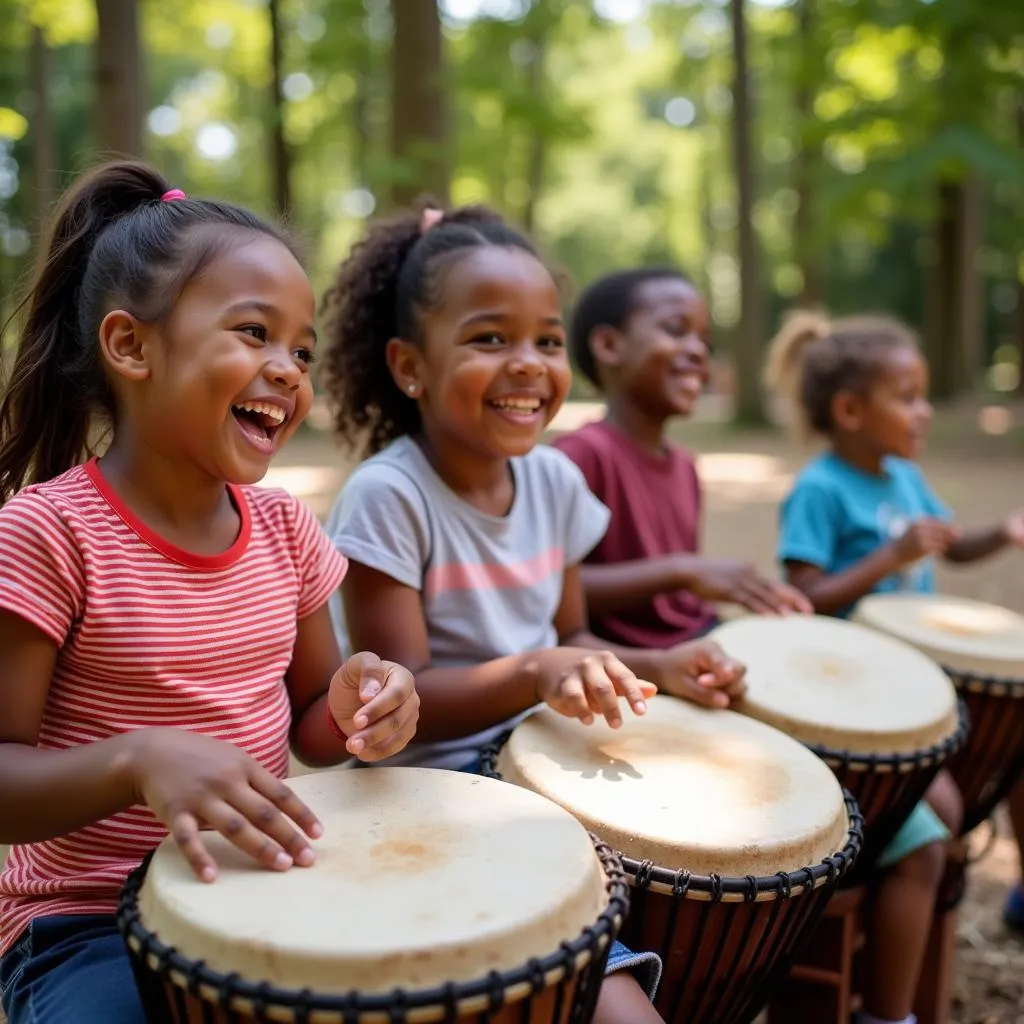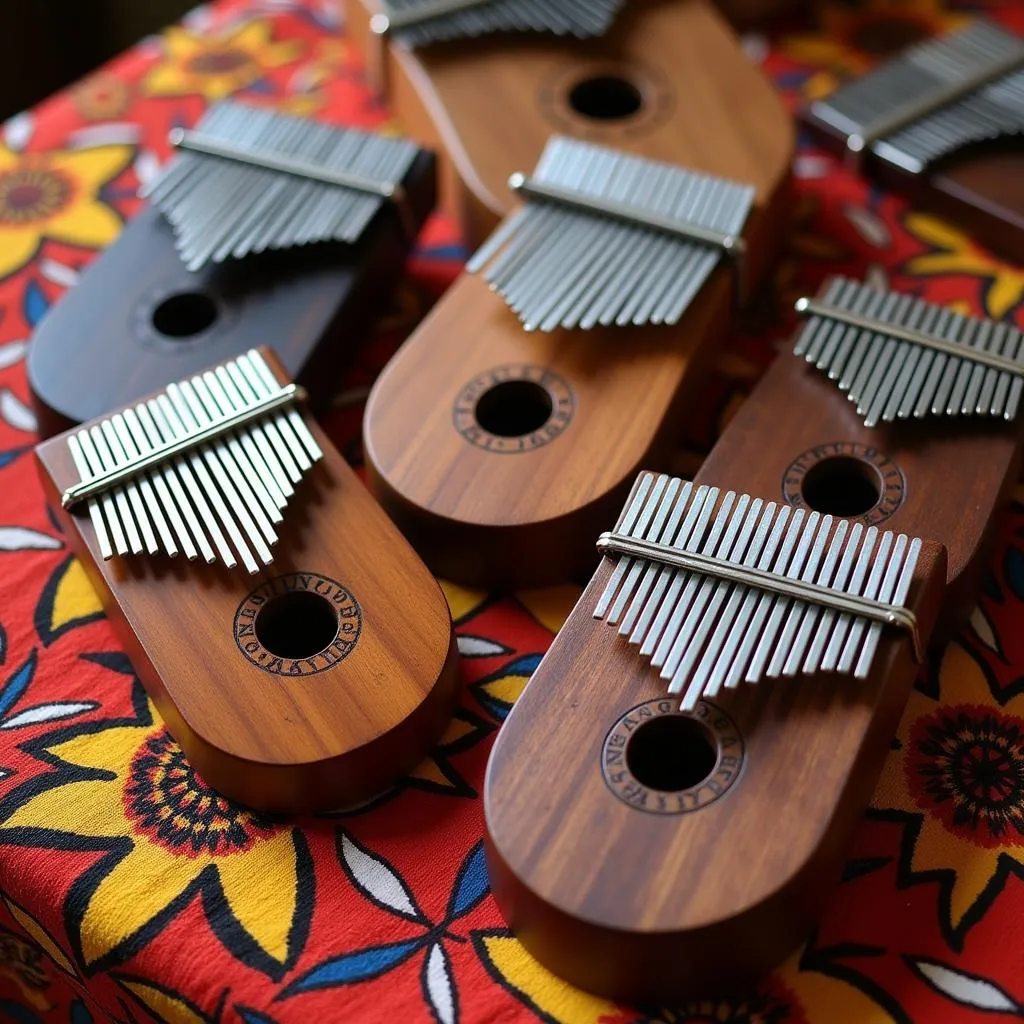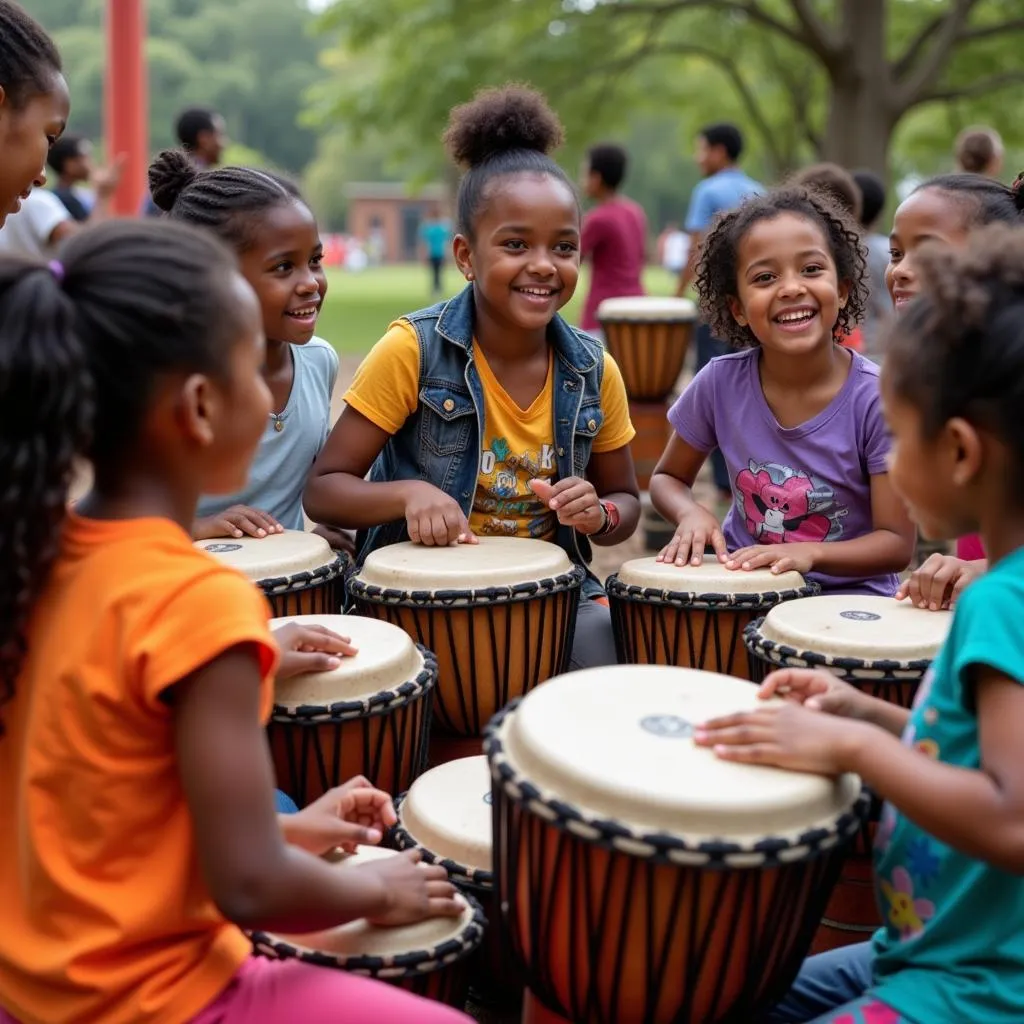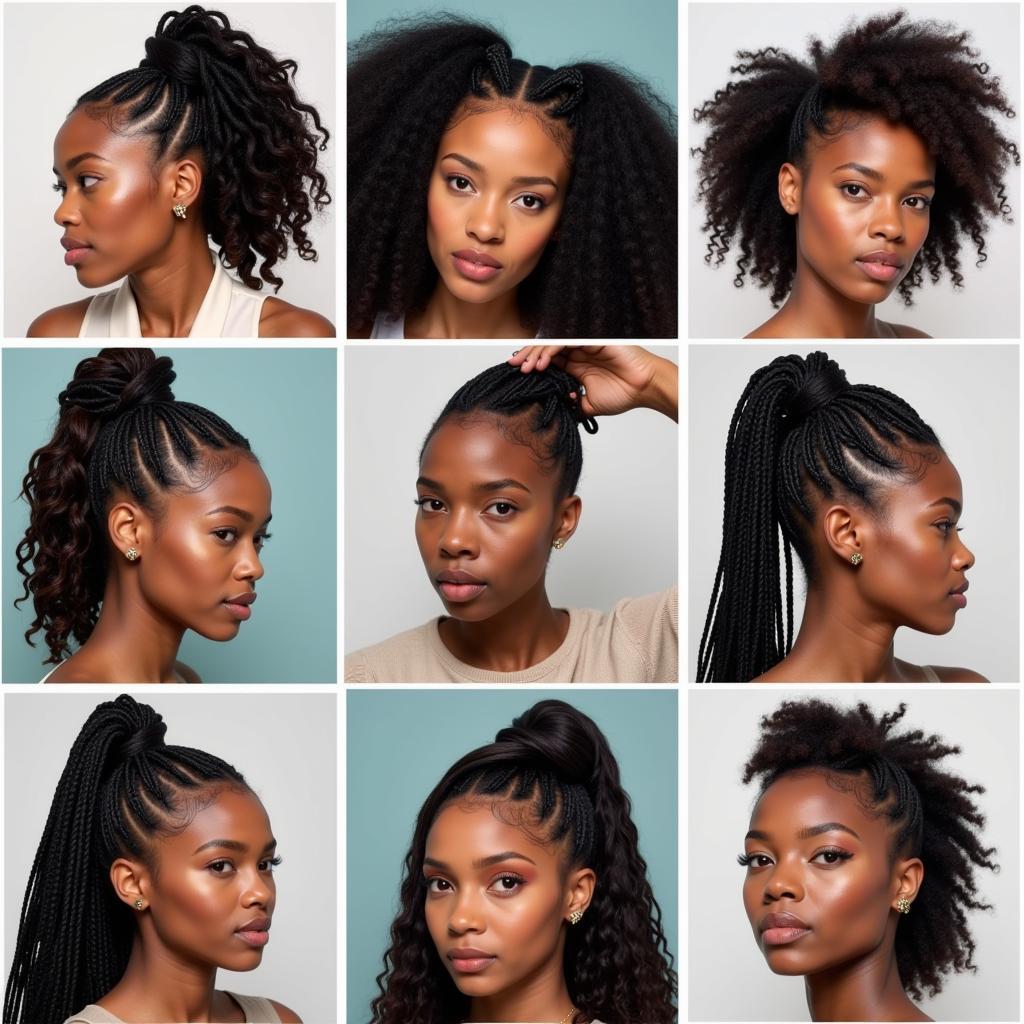African Instruments for Kids: A World of Musical Discovery
African music is renowned for its infectious rhythms, vibrant melodies, and unique instrumentation. Introducing children to African instruments opens a world of musical exploration, fostering creativity, rhythm, and an appreciation for diverse cultures.
 Children playing djembe drums
Children playing djembe drums
Exploring the Sounds of Africa
Unlike many Western instruments, traditional African instruments are often crafted from natural materials readily available in the environment. From gourds and animal skins to wood and seeds, these materials come together to create a symphony of sounds that are both familiar and enchanting.
The Djembe: The Heartbeat of Africa
Perhaps the most recognized African instrument, the djembe is a goblet-shaped drum played with bare hands. Its versatility allows for a wide range of sounds, from deep bass tones to sharp slaps. The djembe’s energetic rhythms are often used in traditional ceremonies and celebrations, captivating audiences with its powerful presence.
Fun Fact: Did you know that the name “djembe” comes from the Bambara phrase “Anke dje, anke be,” which translates to “everyone gather together in peace”? This speaks to the drum’s ability to unite people through music.
 Various mbira instruments
Various mbira instruments
The Mbira: The Sound of the Ancestors
The mbira, also known as the thumb piano, is a melodic instrument consisting of metal keys attached to a wooden soundboard. Played by plucking the keys with the thumbs, the mbira produces delicate, bell-like tones. Often used in storytelling and spiritual practices, the mbira holds a revered place in many African cultures.
“The mbira is more than just an instrument; it’s a way to connect with our heritage,” says renowned Zimbabwean mbira player, Chiwoniso Maraire. “Its music has the power to transport you to another time and place.”
Bringing African Rhythms Home
Introducing children to African instruments can be a fun and enriching experience. Here are some ideas:
- Interactive Music Sessions: Engage children with hands-on experiences using child-friendly djembes, shakers, and rain sticks. Encourage them to explore different rhythms and create their own musical stories.
- Storytelling with Instruments: Combine traditional African folktales with live instrumental accompaniment. Use the sounds of the djembe, kora, or kalimba to enhance the narrative and create a captivating atmosphere.
- Arts and Crafts: Encourage creativity by having children design and decorate their own instruments using recycled materials. This hands-on activity helps them understand the construction and cultural significance of these instruments.
- Cultural Exploration: Supplement musical activities with books, videos, and online resources that showcase the diversity of African music and dance traditions.
 Kids participating in an African drum circle
Kids participating in an African drum circle
The Lasting Impact of Musical Exploration
Introducing children to African instruments fosters a deeper understanding and appreciation for diverse cultures. It encourages creativity, develops rhythmic skills, and broadens their musical horizons. As children explore the rich tapestry of African rhythms, they embark on a journey of musical discovery that will stay with them for a lifetime.
FAQs About African Instruments for Kids
1. What is the best age to introduce African instruments to children?
Children as young as toddlers can begin exploring the world of music through simple percussion instruments like shakers and drums. As they grow, they can gradually be introduced to more complex instruments like the djembe or mbira.
2. Where can I find authentic African Instruments For Kids?
Many online retailers specialize in selling handcrafted African instruments, including child-sized versions. You can also check local music stores or cultural centers that might carry these instruments.
3. Are there any online resources available to help teach kids about African music?
Yes, there are numerous websites and YouTube channels dedicated to teaching children about African music, instruments, and rhythms. These platforms often feature interactive lessons, songs, and videos that make learning fun and engaging.
Explore More About African Culture
- Want to explore other creative activities inspired by Africa? Check out these african animal art activities.
- Looking for a fun and educational activity? Download this free african drum coloring page for your kids!
Need help?
For any questions or assistance, please contact us:
- Phone Number: +255768904061
- Email: [email protected]
- Address: Mbarali DC Mawindi, Kangaga, Tanzania.
Our customer support team is available 24/7 to assist you.

